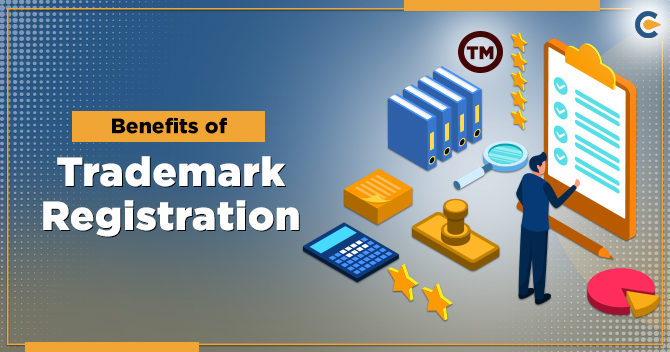The Multifaceted Benefits of Trademark Protection
In the dynamic landscape of business, establishing a distinctive brand identity is paramount. One key tool that facilitates this is a trademark. Understanding the multifaceted benefits it brings can be a game-changer for businesses aiming not just for recognition but for long-term success.
Importance of Trademarks
Brand Recognition and Trust
In the cacophony of competitors, a trademark acts as a beacon for consumers. It goes beyond a mere logo; it becomes the face of trust and reliability. Consumers often make purchase decisions based on brand familiarity and a trademark serves as a visual cue, fostering a sense of confidence in the product or service.

Legal Protection
Beyond the aesthetic aspect, trademarks offer robust legal protection. Securing exclusive rights to your brand elements prevents others from exploiting or diluting your brand. This legal shield is a cornerstone for businesses, safeguarding their intellectual property and fostering a secure environment for growth.
Advantages in Marketing
Consumer Loyalty
Trust is the currency of brand loyalty. A trademark, serving as a symbol of consistent quality, fosters a connection with consumers. It becomes a promise kept, leading to repeat business and word-of-mouth referrals. Building this loyalty is a long-term strategy that pays dividends.
Competitive Edge
In a crowded marketplace, standing out is a challenge. A registered trademark gives your brand a unique identity, setting it apart from competitors. This distinctiveness not only attracts consumers but also provides a competitive edge, making it harder for others to replicate or imitate your offerings.
Financial Benefits
Asset Value
A registered trademark is not just a symbol; it transforms into a valuable intangible asset for your business. As your brand gains recognition, the trademark’s value appreciates, contributing to the overall financial health of your company.
Increased Revenue
Beyond legal protection and brand loyalty, trademarks play a pivotal role in revenue generation. A well-established brand, backed by a trademark, can command premium prices and attract a larger customer base. This financial benefit underscores the direct correlation between trademark investment and increased revenue streams.
Legal Safeguards
Exclusive Rights
Trademark registration grants exclusive rights to use and protect certain aspects of your brand. This exclusivity provides a legal framework that allows you to control and exploit your brand without interference from others.
Protection Against Infringement
One of the primary advantages of trademark registration is the ability to take legal action against unauthorized use or infringement. This protection ensures that your brand remains yours, guarding against copycats and imitators who might dilute your brand’s uniqueness.
Building a Strong Brand Image
Establishing Brand Identity
A trademark is not just a formality; it’s the cornerstone of building a strong brand identity. It encapsulates your brand’s personality, values, and promises, helping consumers connect with your offerings on a deeper level.
Brand Expansion
With a solid trademark in place, expanding your brand into new markets becomes a strategic possibility. The established identity provides a foundation for successful expansion, enabling your business to tap into diverse audiences with confidence.
Considerations for Trademark Registration
Process Overview
Navigating the trademark registration process can seem daunting, but understanding the steps involved is crucial. This section provides a concise overview, breaking down the registration process into manageable steps, and ensuring businesses are well-informed and empowered.
Common Mistakes to Avoid
Trademark registration is not without its pitfalls. Highlighting common mistakes helps businesses navigate potential pitfalls, ensuring a smoother registration process. From choosing distinctive trademarks to understanding the classes of goods and services, these insights can save businesses time and resources.
Frequently Asked Questions About Trademarks
1. What is a trademark?
A trademark is a distinctive sign or symbol that identifies and distinguishes the goods or services of one business from those of others. It can be a logo, name, slogan, or a combination of these elements.
2. Why is trademark registration important?
Trademark registration provides legal protection and exclusive rights to the owner. It helps prevent others from using similar marks, safeguards brand identity, and enhances the overall value of the business.
3. How long does trademark registration take?
The timeframe for trademark registration varies, but it typically takes several months to a year. Factors such as the complexity of the application and potential legal challenges can influence the duration.
4. Can I trademark a common word or phrase?
Yes, it is possible to trademark a common word or phrase if it is used in a distinctive way that sets it apart from others in your industry. Descriptive terms may face challenges, so consulting with a trademark attorney is advisable.
5. What is the difference between TM and ®?
The “TM” symbol indicates that a trademark is being used, but it is not necessarily registered. The ® symbol, on the other hand, signifies a federally registered trademark, providing stronger legal protection.
6. Do I need an attorney for trademark registration?
While it’s possible to file a trademark application without an attorney, legal guidance is recommended. Attorneys can navigate complexities, conduct thorough searches, and increase the likelihood of successful registration.
7. Can I trademark a sound or scent?
Yes, non-traditional marks such as sounds or scents can be trademarked if they are distinctive and serve to identify the source of goods or services. However, they often face additional scrutiny during the registration process.
8. What happens if someone infringes on my trademark?
If someone infringes on your trademark, you have legal recourse. This can include sending a cease-and-desist letter, negotiating a settlement, or pursuing litigation to protect your rights.
9. Can I trademark a logo myself?
While it’s possible to attempt DIY trademark registration, it’s advisable to seek professional assistance. Trademark attorneys understand the nuances of the process, increasing the chances of a successful and enforceable registration.
10. How long does a trademark last?
A trademark can last indefinitely, as long as it is actively used and the required maintenance filings, such as renewals, are submitted on time.
Conclusion
As we conclude this exploration into the benefits of trademarks, it’s essential to recap the key advantages discussed. From legal protection and financial appreciation to building a strong brand image, trademarks emerge as a strategic asset for businesses of all sizes. The final call to action encourages businesses to consider trademark registration seriously. Emphasizing the long-term benefits and the competitive edge it offers, this section aims to motivate businesses to take proactive steps toward securing their brand’s future success.




